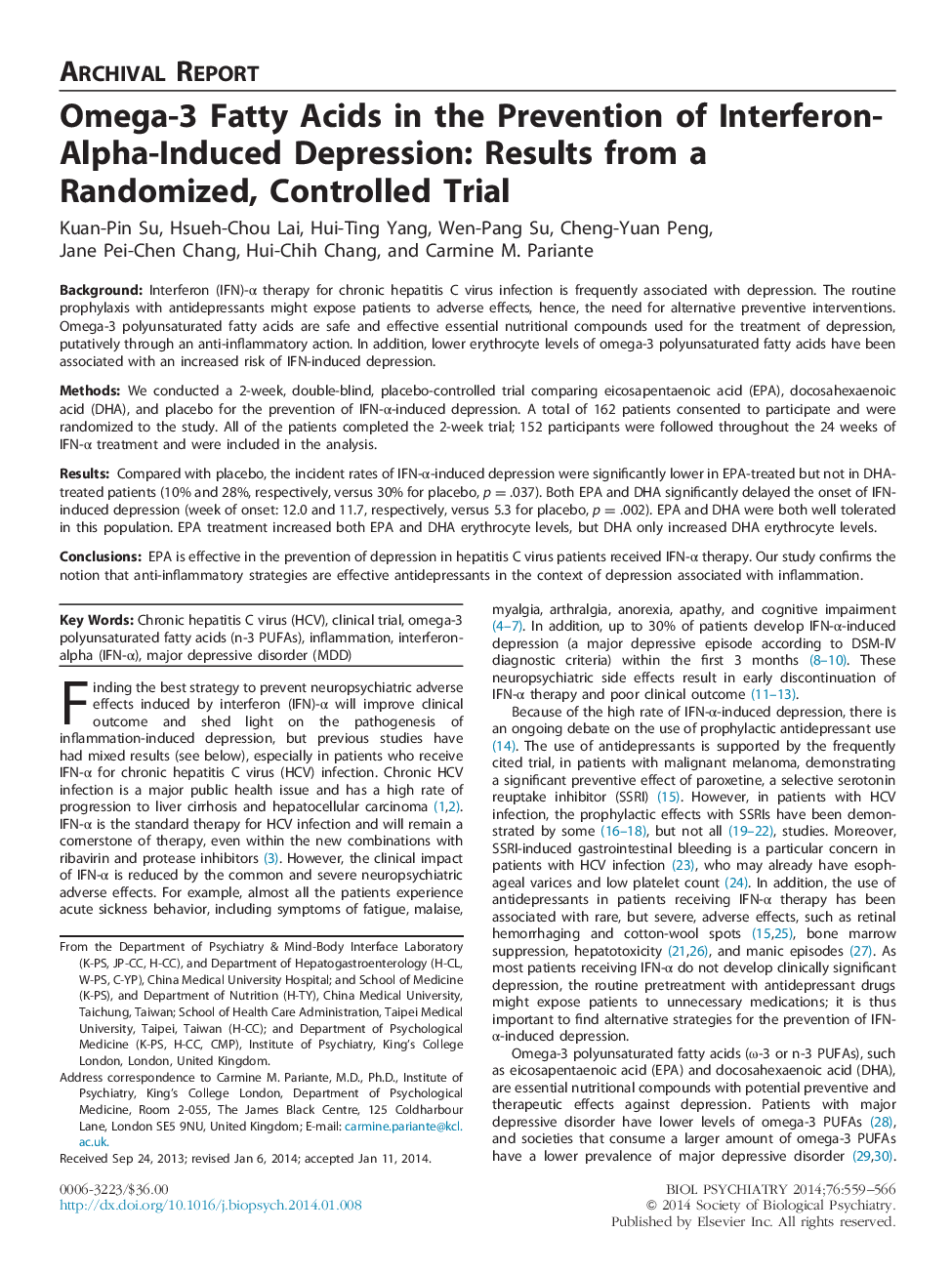| Article ID | Journal | Published Year | Pages | File Type |
|---|---|---|---|---|
| 6226956 | Biological Psychiatry | 2014 | 8 Pages |
BackgroundInterferon (IFN)-α therapy for chronic hepatitis C virus infection is frequently associated with depression. The routine prophylaxis with antidepressants might expose patients to adverse effects, hence, the need for alternative preventive interventions. Omega-3 polyunsaturated fatty acids are safe and effective essential nutritional compounds used for the treatment of depression, putatively through an anti-inflammatory action. In addition, lower erythrocyte levels of omega-3 polyunsaturated fatty acids have been associated with an increased risk of IFN-induced depression.MethodsWe conducted a 2-week, double-blind, placebo-controlled trial comparing eicosapentaenoic acid (EPA), docosahexaenoic acid (DHA), and placebo for the prevention of IFN-α-induced depression. A total of 162 patients consented to participate and were randomized to the study. All of the patients completed the 2-week trial; 152 participants were followed throughout the 24 weeks of IFN-α treatment and were included in the analysis.ResultsCompared with placebo, the incident rates of IFN-α-induced depression were significantly lower in EPA-treated but not in DHA-treated patients (10% and 28%, respectively, versus 30% for placebo, p = .037). Both EPA and DHA significantly delayed the onset of IFN-induced depression (week of onset: 12.0 and 11.7, respectively, versus 5.3 for placebo, p = .002). EPA and DHA were both well tolerated in this population. EPA treatment increased both EPA and DHA erythrocyte levels, but DHA only increased DHA erythrocyte levels.ConclusionsEPA is effective in the prevention of depression in hepatitis C virus patients received IFN-α therapy. Our study confirms the notion that anti-inflammatory strategies are effective antidepressants in the context of depression associated with inflammation.
